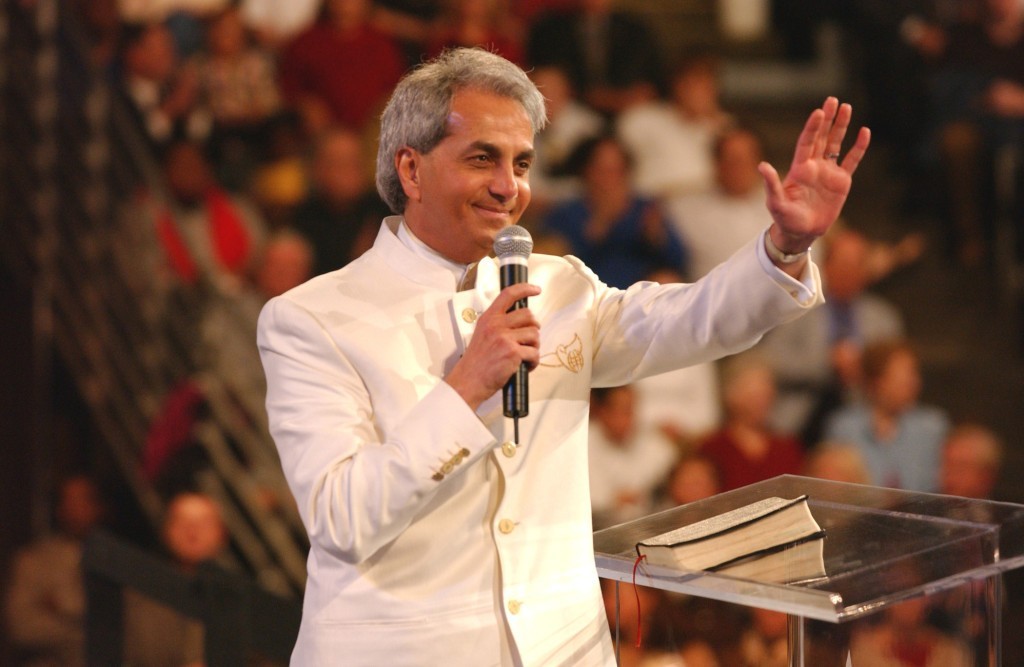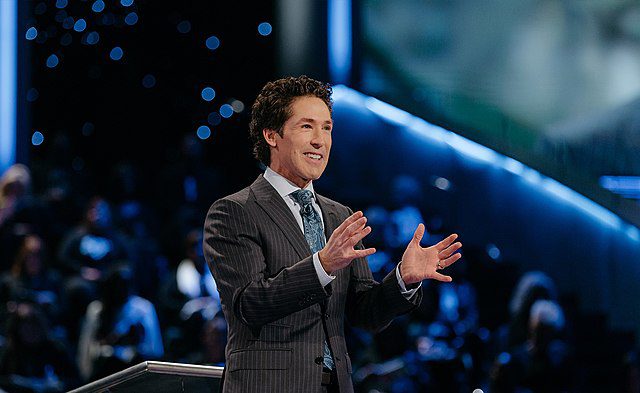Hebrew Words: Sign, Wonder, and Prophet
The children of Israel did not believe in Mosheh because of the signs and wonders he performed in Egypt and in the desert. Indeed, one who believes because of miracles can be easily deceived, since a “miracle” can be done by trickery or sorcery. Rather, all the miracles Mosheh performed were by necessity, not to prove or legitimize his prophecy. It was necessary to turn the staff into a snake and do all ten plagues upon Egypt, because Pharaoh did not let people go. It was necessary to drown the Egyptians, because they were pursuing the Israelites. So, he split the sea and drowned them in it. The people were hungry and needed food, so he brought down the manna from heaven. They thirsted in the desert, so he split the rock and gave them water. Korach and others denied his authority, so the earth swallowed them up. And the same with all other miracles Mosheh performed for Israel.
“We believe in miracles, but we may not rely on them”. (Jewish saying)
It is the object of this work to explain the Hebrew words for “sign”, “wonder”, and “prophet” in the context of Deuteronomy 13. But this work will go beyond the Hebrew study in order to explain also the issue of the false prophets, who speak presumptuously in the Name of the Eternal Elohim and expose certain misconceptions that still exist today. We will explain the matter for this in due course.
 |
 |
 |
 |
Rabbi Mosheh ben Maimon (Rambam, also known as Maimonides), in his work Mishneh Torah, Laws of the Fundamentals of Torah 8:1–3 wrote: “So if a prophet arises and performs signs and great wonders and seeks to deny Mosheh’s prophecy, we do not listen to him, and we know with certainty that these signs are by trickery and sorcery. For Mosheh’s prophecy is not based on proofs, that we should weigh these proofs against those proofs. Rather, we saw it with our eyes and heard it with our ears, just as Moses did”.
Now, it is always important to remember that Hebrew Scripture is a free-flowing text written without divisions in chapters and verses. The division of the Scriptural text into chapter numbers and verses was first introduced into the English translations by the Archbishop of Canterbury Stephen Langton (12-13 century). With that said, we will read our passage, as Mosheh meant to be read,
… All the words I am commanding you, guard to do it. Do not add to it nor take away from it. When there arises among you a prophet or a dreamer of dreams, and he shall give you a sign or a wonder, and the sign and the wonder shall come true, of which he has spoken to you, saying, “Let us go after the gods of the others, which you have not known and serve them”, do not listen to the words of that prophet or that dreamer of dreams, for the Eternal your Elohim is testing you to know whether you do love the Eternal your Elohim with all your heart and with all your soul. (Deu 12:32-Deu 13:1-3)
Insight: The Christian Bible splits this passage in Deuteronomy (in JPS translation, Deu 12:32 is Deu 13:1) into two separate chapters 12 and 13.
At this point in the discussion, it is necessary to understand the terms “sing” and “wonder”. The difference between a sign and a wonder will be better understood by what the Ramban said on the verse. In his commentary to Deuteronomy 13, Rabbi Mosheh ben Nachman (Ramban, also known as Nachmanides) links the term אוֹת ot, a sign, to a natural matter that represents something which is to take place similar to what is stated, “Therefore, the Eternal Himself shall give you an ‘ot’ (a sign) that God is with us”. The sign is the name of the son of the prophet’s wife, “Immanuel”, meaning “God is with us” (see Isa 7:14). The word ot is thus derived from the verb אוּת ut, to come, since ot represents something about to come. The second word Ramban explains is מוֹפֵת mofeit, a wonder, a miracle, in the sense of conspicuousness. This word is derived from the verb יָפָה yafah, to be bright, and applies to something new which a prophet does making some change in the natural order of the world, such as in Joe 2:30. The Sacred Language (Hebrew), says Ramban, adopted the term to signify anything that is supernatural. In other words, ot, sign, is a natural phenomenon, while mofeit, wonder, is supernatural. In Egypt, Elohim performed both signs and wonders, as we know from Deu 4:34.
The word נָבִיא navi, a prophet, implies to a person who has an established reputation as a true prophet. It is derived from the verb נָבָא nava, to speak by inspiration. Thus, the closest translation of navi is “spokesperson” for the Eternal. But, if such a person asks you to violate any of the Eternal’s commandments and/or it involves idolatry, he is a fraud, an impostor. Our passage says that such a “prophet”, who teaches against the Torah and entices the people to forsake it, is a false prophet. In order to understand this properly, it will help to look at the prophecy in Ezekiel.
Many years later, the Eternal confirmed the words of His prophet Mosheh, saying to Ezekiel that anyone, who separates himself from Him, because he has made up “idols in his heart”, that is to say, mental images of his desire, and comes to a prophet to inquire who He is, He the Eternal Himself will answer him by setting His face against him to make an example of that man, and He will cut him off from the midst of His people, so that everyone will know who He is (Eze 14:7-8),
And if the prophet is enticed and shall speak a word, I the Eternal have enticed that prophet, and I shall stretch out My hand against him and destroy him from the midst of My people Israel. And they shall bear their sins, the sin of the prophet is the same as the sin of the inquirer, … (Eze 14:9-10)
Concerning such a “prophet”, Mosheh says: “Do not listen to him!” for such a prophet is guilty of the death penalty (verse 5) even though he himself has not insisted that the people engage in idolatry but has left the decision up to them and to their interpretation of the miracles he has performed. Although the people themselves had decided to follow idols, the “prophet” is still guilty, for he was the inciter of idolatry and who led them add new ways of the serving Him not knowing that this is unacceptable to Him. Rabbi Ovadia ben Ya’akov Sforno (16th century) gives King Shlomoh as an example: the king’s reasoning that the restrictions placed by the Torah on the number of wives a king might have did not apply to him as none of these wives could possibly incite him to turn away from the Eternal. But they in fact did exactly that.
Our verses seem to imply that a prophet claims that God, or God’s angel, spoke to him and has instructed him to legitimize himself by means of signs or wonders. It is a well-known fact that one does not accept a person’s claim to be a prophet until he has legitimized himself either by a sign or wonder. In order to legitimize himself before the people as a prophet, not only do the miracles he has foretold have to occur, but they have to occur exactly as he has foretold them, because if they occur in such a way, the laymen are more acceptable to believe the claimant. However, in order that he will appear successful in his efforts to legitimize himself as a “prophet”, he must be empowered to persuade them to follow him. And here comes the intervention from heaven to bring the test to realization: Elohim indeed empowers that person to do miracles before the people. But according to the plain meaning of the text, the impostor Mosheh speaks of does not even claim to speak in the Name of the Eternal. Nevertheless, do not listen to him, warns Mosheh, even though his sign or wonder may come to pass. But if someone asks why God has given him the power to perform miracles, Mosheh replies, “for the Eternal your Elohim is testing you to know whether you really love Him, or this is just a lip service of yours”.
The person Mosheh warns about is indeed an imposter, but Mosheh called him נָבִיא, navi, “prophet”. Why? The answer is that he (Mosheh) may be sarcastic here and calls him by the title this person claims to possess, not because he is a true prophet sent by the Eternal to speak in His Name. But how can we discern the impostor from the true prophet of the Eternal?
As the Sages have rightly defined (see Jer 28:9), the real test whether a prophet is real or an impostor is when he has foretold something positive, a positive prophecy. In this case, all he has foretold, not some of it, must be fulfilled in order to be even considered that he might be a true prophet; not a single detail of what he has predicted is allowed to fail to come true in a positive prophecy. When a prophet predicts disasters (negative prophecy), however, which do not occur, he is not suspected of being a false prophet, because the failure of the prophecy can be attributed to repentance on the side of the people, because they have been warned. When a negative prophecy fails, the prophet has done his job to warn the people; they have repented. When the prophecy comes to pass, the prophet has failed, and the punishment is upon the people. A prophet does not foretell the future; this is a fortuneteller. A prophet calls on the people to return to the Covenant in repentance and perform the commands. But if they do not listen to him, then he tells them what will befall them. Thus, the whole purpose of the prophet’s mission is to cause people to return to the Eternal. Proof of this is what happened in Nineveh, when Yonah the prophet was sent to warn the Assyrians, the archenemy of Israel, to repent, and they did repent.
Nachmanides, however, also writes that it is possible that Mosheh may not refer to an impostor at all. He argues in his commentary on Deuteronomy 13 that some people possess souls that have been endowed with some gift of prophecy. In Hebrew, that power of prophecy is called kahin, from the Arabic kahanah, a term referring to the power residing in man to be able to foretell the future. Such people may have some knowledge of future events although they themselves do not know the origin and the purpose of such knowledge (perhaps, Nostradamus was such a person).
In the issue of “false prophet”, there is a common mistake made when it is asserted that Deuteronomy refers only to those who entice the people to worship pagan deities. In the following, we will argue that this is not the case in Deuteronomy 13. This will be further explained in the interpretation of the verses, for it is incomprehensible that Mosheh had concerned himself only with idols of the nations.
Rabbi Avraham ben Meir ibn Ezra writes that it is possible that the prophet referred to by Moses is someone who had stolen a prophecy from the Eternal, i.e., from a true prophet (perhaps, from misreading or misinterpreting a prophecy in the Tanach and presenting it as his). Nevertheless, by establishing his credibility concerning additional predictions, such a prophet misleads the people into believing him in introducing worship to an additional god to the true One. In this case, the impostor may try to convince the people that the Creator is true God, yet there is another God who is subordinate to Him in power and authority. This, while sounding harmless to the laymen, is another form of idolatry, because it denies that the Eternal is the only One and there is none but Him who has created the universe (read Mosheh in Deuteronomy 6:4). In his efforts, the impostor usually dresses up his message by acknowledging the Creator, as he knows very well that it is useless to begin his “predictions” without even mentioning the works of Creation. Thus, he builds on the truth of the “old” in order to establish a “new” or “upgraded” version of it by persuading the laymen that the “old” had been already fulfilled and replaced. In either case, says Mosheh, he is a false prophet.
There are difficulties with believing that the people could be naive enough to fall for such heretical claims by impostors, but nevertheless it is true; people still believe in signs and miracles, as long as they are sensational enough; the more sensational they are, the more believable they will look. So why do they believe them?
“Faith based upon miracles is a faith that is prone to doubts”. The Rambam (Hilchos Yesodei ha’Torah 8:1)
The command “Do not listen to the words of that prophet” refers to someone who prophesies to worship the gods of the others (literally translated) and who prophesies in the Name of the Eternal to change any of the commands of the Torah, because whose commands one follows, this is the “God” in his own eyes. The signs and wonders “proving” the existence of a natural or supernatural phenomenon makes the people believe the imposter seeing that they had never heard of its existence, seeing that the more sensational the phenomenon looks and sounds, the more difficult it is to dismiss the claim. The difficulties of rejecting such an imposter also come from the past performed miracles he had done through which he had thus legitimized himself before the people as a well-established prophet. Once the people believe him they become idolaters as he is, even though they have followed him out of ignorance. The ignoramuses often forget that no prophet is to be believed, even though his sings and wonders have come to pass, if his message even remotely suggests violating laws of the Torah, regardless of how many times he had in the past demonstrated that he was a true prophet by having his predictions fulfilled. Therefore, the fulfillment of the signs and wonders he had used to persuade the people to believing him are not sure criteria that he is a true prophet.
If someone were to ask, that if the Eternal knew in advance that such an imposter would “preach” a heresy, why did He equip him with prophetic powers in the first place? Mosheh answers by telling us that it is He Himself who does this in order to test our faith in Torah being the one and only Torah He has given us. We therefore must follow only the revealed word of the Eternal as handed down by Mosheh. Everything else is a test. And once your faith in the Eternal has been so tested, you will become truly established in an unshakable enduring conviction to hate lies that deny the Word of the Eternal. We therefore are not to even listen to the imposter to find out if his words have even partial substance, for there can be no question that the man is full of lies and tells things he has made up and things the laymen want to hear.
At the end of this study, let us return to our main subject. We suggest (based on what we studied above) the following paraphrase of the words of our teacher Mosheh: “Do not listen to the words of that “prophet” even if his words are logical to believe that they could override, replace, or renew His commands, seeing that I have warned you that the Eternal Your Elohim is testing you whether you will turn aside from the Torah and bow down to a deity other than He. The Eternal allows such people to speak and do miracles to test your faith. He Himself never needs a test in order to know, as He is always aware of man’s belief. But the test is for you”.
After all of the above, it remains for us to explain why the Christian Bible has split the passage in Deuteronomy into two separate chapters 12 and 13. Because Mosheh refers to a false teacher who changes the Word, the Torah, even though Mosheh said: “All the words I am commanding you, guard to do it. Do not add to it nor take away from it. [Because] when there arises among you a prophet or a dreamer of dreams, he shall give you a sign or a wonder … to go after the gods of the others”. Because if Mosheh had only written verses 1 through 3, we would not have known that he meant the guarding of the Torah: “Walk after the Eternal your Elohim and fear Him, and guard His commands and harken to His voice, and serve Him and cling to Him (Deu 13:4)”.
Knowledge known to only a few will die out. If you feel blessed by these teachings of Time of Reckoning Ministry, help spread the word!
May we merit seeing the coming of our Mashiach speedily in our days!
This page contains sacred literature and the Name of the Creator. Please, do not deface, discard, or use the Name in a casual manner.
